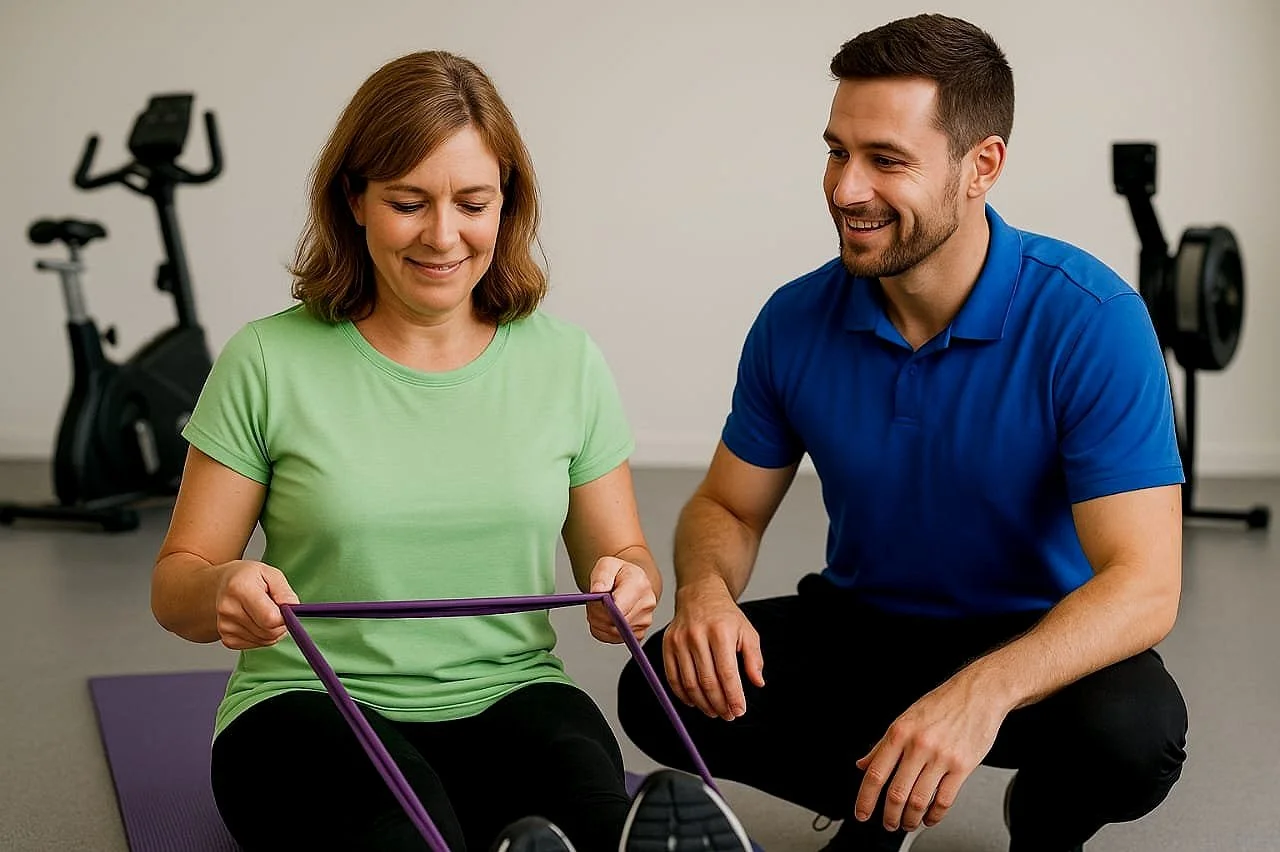
Exercise Physiology
What Is Exercise Physiology?
Exercise physiology is the clinical application of movement and lifestyle interventions to support people living with chronic health conditions and complex needs. Accredited Exercise Physiologists (AEPs) are university-qualified allied health professionals who specialise in prescribing safe, evidence-based exercise tailored to each person’s unique health status, goals, and lifestyle.
AEPs are clinically trained to work with individuals experiencing conditions such as diabetes, cardiovascular disease, osteoporosis, and mental health concerns. They bridge the gap between medical care and long-term wellbeing - using movement as medicine to promote function, resilience, and independence.
Why Work With an Exercise Physiologist?
Working with an Exercise Physiologist provides a personalised and structured pathway to better health. Whether you're newly diagnosed, recovering from surgery, or aiming to prevent future complications, our programs are designed to support lasting change—not just short-term results.
You can expect:
Comprehensive health and movement assessments
Clear, achievable plans designed around you
Safe exercise tailored to your needs and lifestyle
Ongoing support, education, and motivation
We support people at all stages of their health journey. No two programs are the same -because no two people are the same.
Supporting People Living With Diabetes and Endocrine Conditions
Exercise is a cornerstone of managing diabetes and many other endocrine conditions—but the right approach makes all the difference.
Our Exercise Physiologists work closely with individuals who benefit from structured exercise as part of a care plan prescribed by their GP or Endocrinologist. Many of our patients find it challenging to exercise due to physical limitations or motivation. That’s why they value the privacy of our on-site gym and the personal care and attention provided by our AEPs.
We help improve:
Insulin sensitivity
Blood glucose control
Energy levels
Body composition
Mental wellbeing
You’ll receive a program that evolves with you - designed to be safe, sustainable, and effective. Many clients also find relief from fatigue, pain, and mobility issues through consistent, guided movement and education.
David Mitchell, a key member of the Living Diabetes team, brings extensive experience and insight into managing complex endocrine needs through exercise.
A Collaborative Approach to Your Care
Health is never one-dimensional—and neither is our approach.
The LDE team follows a multi-disciplinary care model which includes your GP and your broader care team to provide a truly integrated experience. This includes:
Endocrinologists – to ensure medical oversight and hormone-related care
Diabetes Educators – to align your exercise plan with medication and self-management strategies
Dietitians – to reinforce healthy eating and optimise metabolic outcomes
Podiatrists – to support foot health, mobility, and injury prevention
This multidisciplinary model allows us to tailor care to your whole self—body and mind—and ensures consistency, safety, and progress across all areas of your health. You can discuss this further with your GP.
Why Exercise Works: The Clinical Rationale
Exercise is not just helpful—it is a clinically proven treatment for people living with diabetes and endocrine conditions. Research consistently shows that the right type and dose of physical activity can:
Increase insulin sensitivity, helping your body use glucose more efficiently
Lower blood glucose levels, both acutely and over time
Improve lipid profiles and reduce blood pressure, lowering cardiovascular risk
Boost mental health, reducing symptoms of anxiety, depression, and diabetes-related burnout
Preserve muscle mass and bone density, which decline more rapidly in chronic conditions
Enhance mobility and reduce falls risk, especially for older adults and those with neuropathy
Current guidelines recommend at least 150 minutes of moderate-intensity aerobic exercise per week, plus 2 sessions of resistance training—and an AEP helps you get there safely, sustainably, and confidently.
Location & Referral Information
Location:
Living Diabetes & Endocrinology multidisciplinary care clinic in Osborne Park, with a private on-site gym.
Rebates may be claimable via:
Medicare (with a valid GP Management Plan)
Private Health Insurance (check with your provider)
A GP referral is required to claim a rebate under a GP Management Plan.
Please provide your care plan at the time of making your first appointment.


